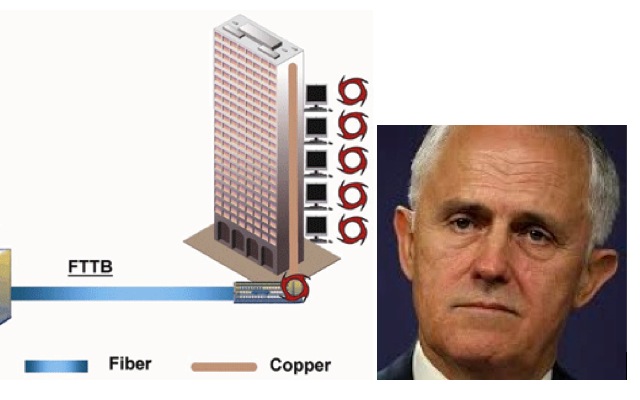
Telstra throws down fibre challenge
In a move that challenges the federal government to clarify its broadband policy, Telstra has been for some months trialling Fibre to the Basement (FTTB) services for residential areas.
In September last year, rival provider TPG set a cat among the regulatory pigeons by announcing a plan to roll out fibre to half a million Multi Dwelling Units (MDUs), potentially overbuilding the National Broadband Network (NBN).
It didn’t take long for Optus to respond with its own “head-line grab” – as Optus’ managing director of networks Vic McClelland himself described it – with the company flagging its own interest in FTTB in mid-December.
The point, of course, is that the NBN is supposed to be a monopoly, at least within its own footprint, bounded by its 121 Points of Interconnection. And a good proportion of the MDUs that TPG is targeting would fall within that footprint.
Legislation designed to protect NBN’s monopoly from such cherry picking was introduced in 2011. This restricted the ability of carriers to offer infrastructure-based services in competition with NBN Co.
A carrier can now only extend its fibre within 1 kilometre of its existing assets and/or upgrade its network to speeds above 25Mbps if it is willing to offer a wholesale service on terms equivalent to NBN CO’s. (This last restriction has ensured the stagnation of the fixed broadband market, in terms of speed, since that time.)
It has never been clear just how TPG intended to get round these restrictions. But the company has no doubt been emboldened by Communication Minister Malcolm Turnbull’s enthusiasm for infrastructure-based competition.
The trouble with that competition, however, is that it will undermine NBN CO’s ability to fund services in the less profitable areas of its operations. And here lies the dilemma for the Coalition.
As Minister, Turnbull has the power to grant TPG an exemption from the anti-cherry picking laws.
But as the Prime Minister is becoming fond of saying, why should the government grant favours to one company and not to everyone?
Telstra’s move signals the fact that the industry will not wait forever for Turnbull to make up his mind on this question.










